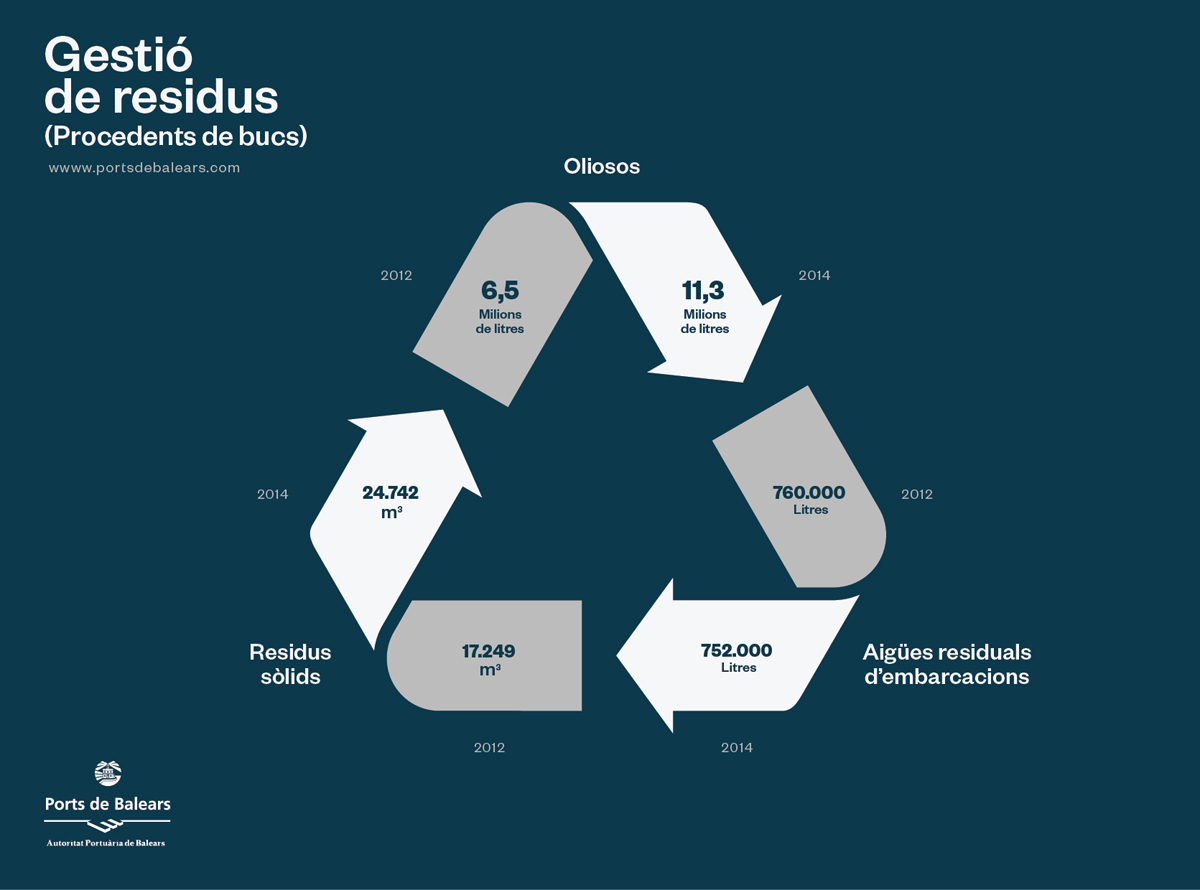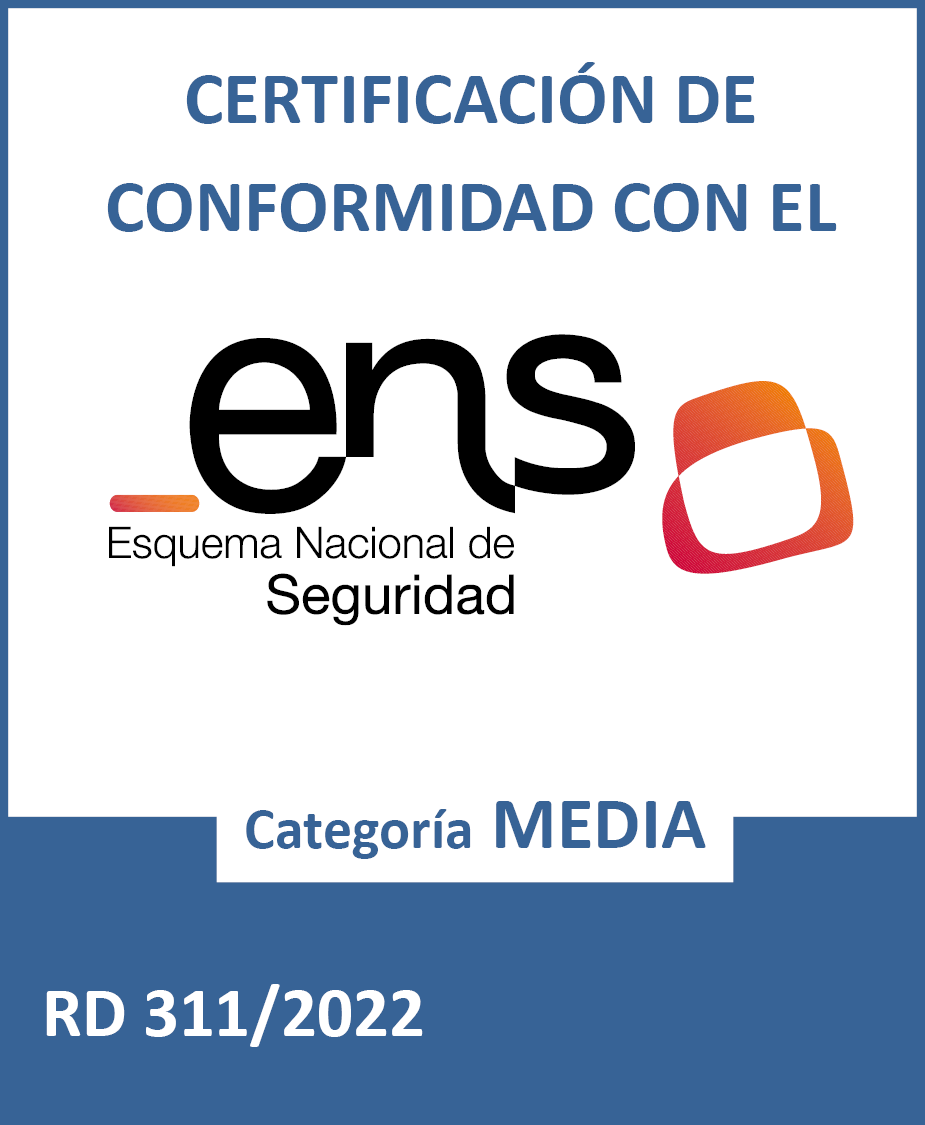
Waste management from the ship
Palma
01/07/2016
The ports of general interest managed by the Balearic Islands' Port Authority (APB) register more than 40.000 movements of ships carrying cargo and passengers every year, and around 800 calls of tourist cruise ships which unload the waste that generate aboard.
It is a controlled unloading carried out by authorised managers and complying with the international norms of Marpol Convention for the prevention of pollution from ships. In fact, waste management usually starts in the ship with the process of separate collection and classification.
In 2014, pending the publication of latest data, 25.000 cubic metres of waste were registered in the five ports of general interest, apart from 11.3 million litres of oil waste and 72.000 litres of sewage.
From now on, numbers will be more accurate, as a scales and weighting system of unloaded waste has been designed.
But the mission of the Balearic Islands' Port Authority is not only to facilitate an adequate waste management, but also to involve port companies and shipping lines in the adoption of environmental management systems. With this aim in mind, the APB provides incentives to companies, among other actions. This is the case of Tanit Ibiza Port, responsible of Ibiza's dry dock, which has been proposed to be provided with an incentive for applying good environmental practices in its facilities, where vessels are repaired and maintained.
The responsibility of cruise ships
Cruise ships are increasing their environmental requirements, based on society's demands. We can see an example in the Harmony of the Seas, of Royal Caribbean, which berths at Palma since the last 13th of June. It is the largest cruise ship in the world, but also one of the most advanced regarding energy efficiency. It is equipped with air lubrication systems and with gas purification systems that allow for the elimination of up to 98% of the emissions of sulphur dioxide.
In the same line, cruise ships like the AIDA Prima are equipped with engines which work with liquid gas or marine fuel and which reduce the emissions through powerful filters.
With the same aim, the Balearic Islands' Port Authority is participating in the European project Onshore Energy Power, in collaboration with Tenerife's, La Luz-Las Palmas's and Pasia's (Guipuzcoa) ports, for the provision of electricity to berthed ships that can turn off the engines and reduce the emissions of CO2 and the noise.
Quality as an improvement.
In order for all the environmental actions to be included in the DNA of the ports, the APB aims at getting the certification ISO 14:001 this year. The institution is currently making an environmental diagnosis at Palma's, Mahon's, Alcudia's, Ibiza's and La Savina's ports, which will allow for the elaboration of action plans in the ports' facilities and services. This diagnosis includes the analysis of the quality of the water and air, of energy efficiency and of the possible losses in the water network. All the actions are aimed at applying a process of continuous improvement.







